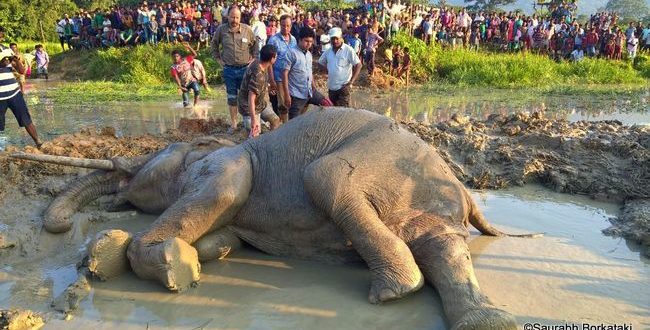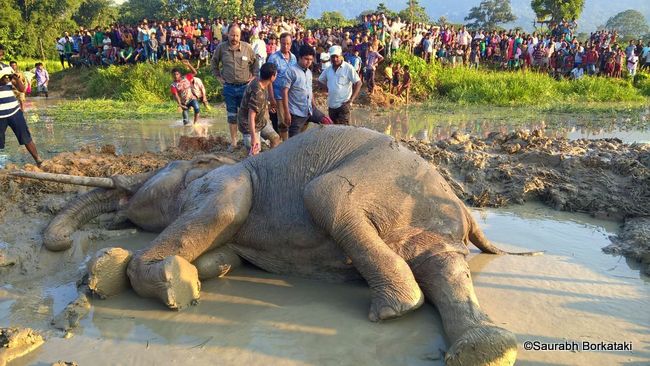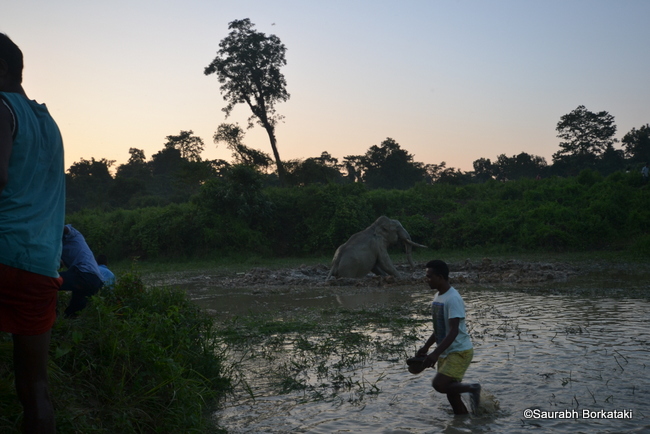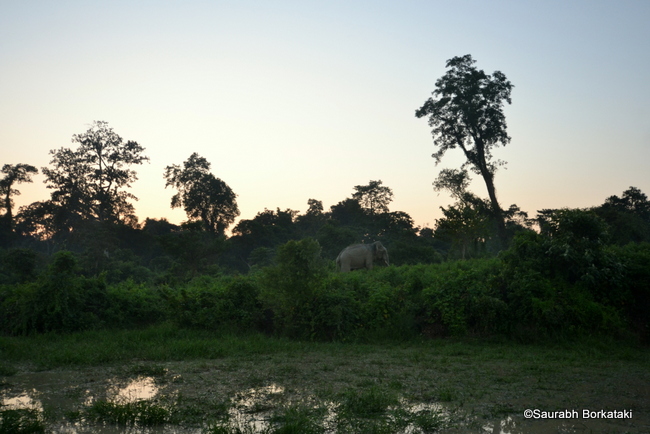First-hand Account: CWRC MVS Team Successfully Treats Wild Tusker in Nagaon
Amguri Village, Nagaon District, Assam, October 20, 2016: A wild tusker was treated for suspected food poisoning – either from primary or secondary sources – by a Mobile Veterinary Service (MVS) unit of the Centre for Wildlife Rehabilitation and Conservation (CWRC; the wildlife rescue, treatment and rehabilitation facility run by IFAW-WTI and the Assam Forest Department near Kaziranga National Park) yesterday afternoon.
The following is a first-hand account of the incident by Dr Samshul Ali, the attending MVS veterinarian:
I got my MVS team together and we proceeded to the spot immediately. On the way I discussed the animal’s condition with the Conservator of Forests (Northern Assam Circle, Tezpur) Mr P Sivakumar, and the Divisional Forest Officer (Nagaon Territorial Division) Ms Deepika Chaudhary, who were present at the site. From the photographs sent to me by Mr Sivakumar, I surmised that the tusker may have eaten something that had laid him low.
Getting from CWRC to Nagoan was not easy that day; the entire state was affected by a 36-hour ‘Assam Bandh’ called by a group of socio-political organisations. Repeated blockades by protesters on NH 37 had resulted in traffic disruptions that would have made the going difficult, and potentially dangerous. Our MVS units have been attacked by mobs in such situations previously, so we were especially thankful to Mr Suvashish Das, the Divisional Forest Officer (Eastern Assam Wildlife Division) of Kaziranga, for providing us with a security escort through bandh-affected areas!
A local veterinarian had provided some supportive medication but the tusker’s condition had not changed. I provided specialised medication to counteract the symptoms of poisoning, and waited.
Our MVS team members and forest staff kept an eye on the elephant till it disappeared deep into the forest. Later, two mahouts with ‘kumki’ elephants (trained captive elephants) were placed in the area to monitor its health and wellbeing overnight.
Managing agitated crowds is one of the most important factors in such situations, not only for the safety of the wild animal but also that of the people working to save it. In this particular case our MVS team is thankful to Ms Deepika Chaudhary, DFO, Nagaon Territorial Division, wildlife volunteers Smarajit Ojah and Saurabh Borkataki, the forest staff of Salna, the Nagaon civil administration, and the villagers of Amguri, for their wholehearted support in saving the elephant in distress.












